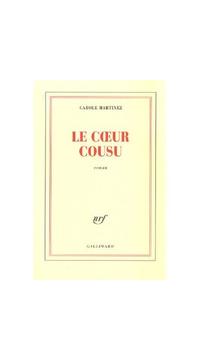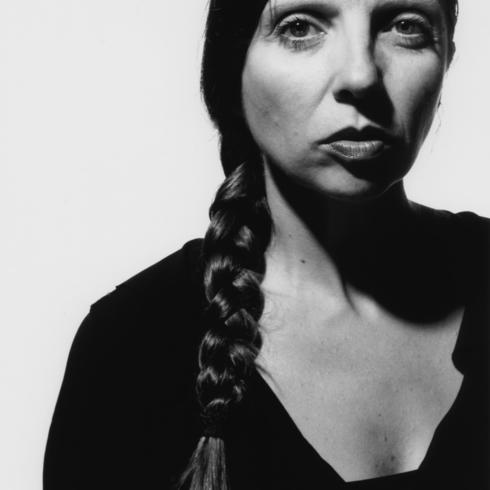
" Le coeur cousu "
Novel
Editions Gallimard
- Winner : The High-school Pupils Favorite Choice 2007
- Winner : The Discovery Grant 2007
"Listen, my sisters ! listen to the rumor that fills the night ! listen... the sound of mothers ! Sacred things whisper in the shadows of the kitchen. At the bottom of old pots, in the smell of spices, magic and recipes mix. The silent pain of our mothers has gagged their hearts. Their complaints have passed in soups : tears of milk, blood, spicy tears, savory and sweet savours. Creamy tears on the palates of men !"
Frasquita Carasco in a village in southern Spain has a reputation as a magician or witch. Her gifts are handed to garments she sews, she embroiders objects : flowers on fabric created for a wedding dress are so alive they wilt under the gaze of envious villagers, a range reproduced with such perfection wings of a butterfly that flies out of the window, the silk heart that she hides under the clothes of the Madonna carried in procession seems to beat miraculously ... Frasquita was played and was lost by her husband during a cockfight. Condemned by the village for this adultery, she is doomed to wander through Andalusia, the revolts of peasants put to fire and blood, followed by her also gifted little ones - or burdened - with supernatural gifts ...
The novel alternates between lyrical passages and anecdotes, funny or cruel. The wonderful here is never forced : it fits naturally into the tragic cycle of life. Three back cover pages and we realize : it's serious.
It's the first novel as you read few with a powerful writing and striking lyricism. The author, probably nearsthe "magical realism", draws on the register of wonder and superstition to add strength to each character, even a secondary one. So well we could cut out stories from the story, especially around the figure of the ogre - spectacular. Fully absorbed by the fate of Frasquita and her family, the reader thinks of Camus : it must be the despair of living to enjoy life. This "Coeur cousu" that does not weaken over 400 pages, is simply great. Anne Crignon, Le Nouvel Observateur - 2215 - 19/04/2007

